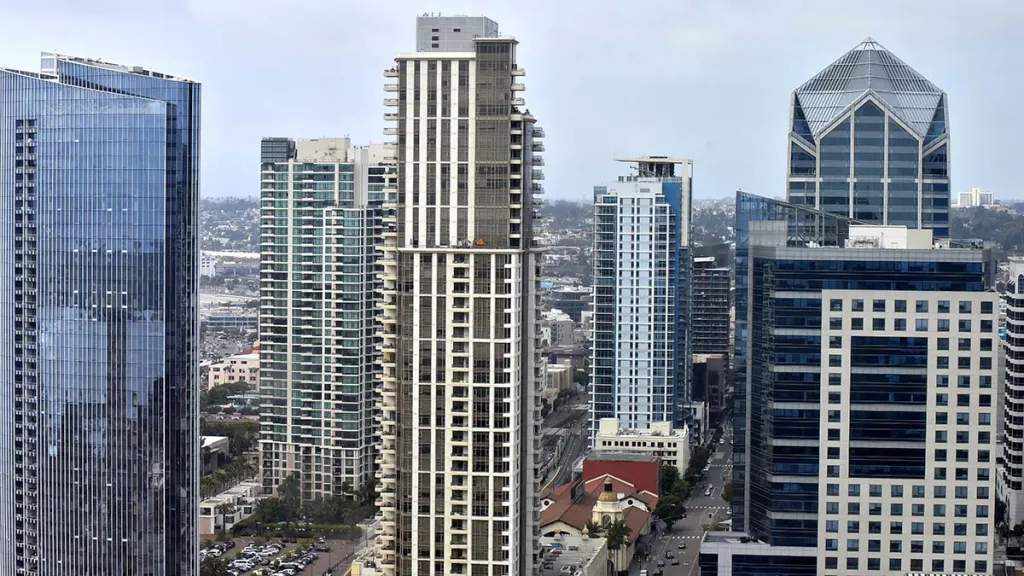San Diego ranks among the most expensive American cities in which to live, work, and raise a family. For the nearly 1 in 3 San Diegans earning below a comfortable livable wage, this reality is increasingly unsustainable. While attention is justifiably paid to the role of housing and wages in this cost-of-living crisis, a quieter and often-overlooked factor is compounding the crisis: excessive lawsuit payouts that inflate the cost-of-living and drain city resources.
Cost Impacts: Excessive Litigation Drives Up The Cost-of-Living
When lawsuits are brought against individuals, businesses, non-profits, or other entities, it is often less expensive and less cumbersome for these organizations to settle a lawsuit than take it to court—regardless of whether a true wrong or harm was committed. As such, bad actors are incentivized to bring frivolous lawsuits, and trial attorneys—who take at least 40% of plaintiff winnings—are incentivized to get every last dollar they can regardless if payouts are commensurate with the damage caused.
As such, small businesses, non-profits, universities, and other entities need to protect themselves from predatory practices that incentivize this bad actorship. When the civil justice system is exploited, it results in punitive, random, and unpredictable outcomes that can result in exorbitant damages. This generates unpredictability, which, in turn, causes businesses to raise prices to protect themselves from volatility. On average, prices of food, medicine, and more are 1.32% higher due to an unbalanced civil justice system in the United States; but in California, prices are 1.54% higher than they would be under a balanced civil justice system.
In San Diego, one of the nation’s most expensive cities, housing alone consumes almost 38% of the average household budget, 5% more than the national average, and the cost of infant childcare is more per year than in-state tuition and fees at San Diego State University. Additionally, California families end up losing $8,306 every year on average in increased costs of goods and services as well as lost wages. Against this backdrop, every dollar matters and San Diegans are being bled dry by a broken legal system.
Civil Services Impacts: Excessive Litigation Drains City Budgets
In addition to increasing day-to-day costs, San Diego’s city budget is burdened by millions in legal settlements, robbing residents of essential services like libraries, community centers, park maintenance and after school programs.
Between 2019 and 2024, San Diego paid over $193 million in lawsuit claims. That’s nearly 75% of the projected budget deficit for 2026. And that number excludes any settlement under $50,000, which are paid without public oversight. This trend isn’t new—from 2010 to 2018, the city spent $220 million on legal claims and fees. San Diego, a self-insured city, pays these lawsuit settlements directly, meaning taxpayers foot the bill. In 2023 alone, city debt totaled to $2.1 billion, placing an average burden of $3,900 on every taxpayer, equivalent to two and a half months of infant care or 20% of annual in-state tuition at San Diego State University.
What is at Risk When Lawsuits Siphon from the City Budget?
To address this mounting deficit, the City of San Diego has created a Select Committee to explore legislative and policy responses, including wage increases and housing reform. Other city officials, concerned more so with the city deficit, have proposed budget cuts to libraries, parks, and community programs. But few officials are discussing the major source of budget strain and cost impacts from millions in liability payouts to which the city is beholden.
Services most used by working families are the first on the chopping block when legal payments balloon. Every dollar spent on excessive liability settlements is one less dollar for:
- Affordable Housing Projects: San Diego’s housing costs are among the nation’s highest—it can take over 30 years to save for a downpayment in San Diego—yet lawsuit costs divert funds away from affordable housing solutions.
- Libraries and Recreation Centers: To address the budget deficit in the 2026 proposal, the city made targeted reductions in library hours, including closing branches on weekends, and shortened recreation center hours, on morning and weekends, disproportionately affecting working-class families and children.
- Community Arts and Public Spaces: As city officials have considered fees at city beaches and parks, like Balboa Park and Mission Bay Park, to alleviate the budget deficit, cultural access funding is at risk which jeopardizes equitable access to public spaces.
- City Infrastructure: From sidewalk and street repairs to public transit and the maintenance of public spaces, core infrastructure suffers when legal payouts consume discretionary funding.
A Better Path Forward
Tackling San Diego’s cost-of-living crisis and mounting budget deficit will require many proactive solutions to offer genuine relief to lower and middle income families. One step in this direction is addressing the unrecognized aggression of excessive lawsuit payouts that cost taxpayers both in civil services and day-to-day goods needed to survive.
San Diegans deserve a justice system that works for the wrongly harmed. Not a legal system that incentivizes personal injury firms to prey on vulnerable communities, small businesses, and other entities that cannot fairly protect themselves. Lawsuit reform isn’t about denying justice, it’s about creating a justice system that truly works—one that builds equity, incentivizes fair practices, and protects against bad actorship.
It’s time for reform—so city budgets can be used to build a brighter future, while ensuring families don’t have to choose between groceries and childcare.

